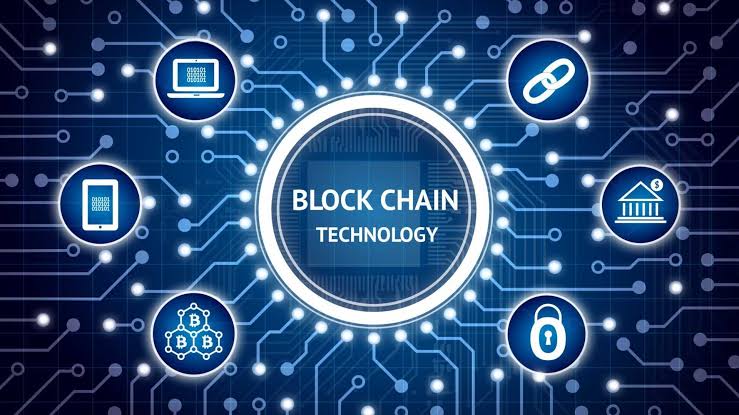In July 2025, the global supply chain is changing fast because of new digital technology. One of the biggest changes comes from blockchain technology. It was first made for cryptocurrencies but is now used to make supply chains more clear, safe, and reliable.
With increasing consumer demand for ethical sourcing, faster delivery, and product authenticity, traditional systems are no longer sufficient. Blockchain offers a decentralized, tamper-proof ledger that tracks goods from origin to final destination—introducing trust into every link of the chain.
Understanding Blockchain’s Role in the Supply Chain
Blockchain is a distributed database where transactions are recorded across multiple computers in real-time. Each transaction, or “block,” is added to a chronological “chain” after validation, making it nearly impossible to alter without consensus from the network.
In supply chains, blockchain records every movement of a product—from raw material sourcing to transportation, storage, and final delivery. Every participant in the supply chain—from suppliers to retailers—can access the same real-time data, reducing confusion and fraud.
This level of transparency is especially vital in complex, global supply networks involving multiple intermediaries and cross-border regulations.
Enhancing Traceability and Transparency
One of the most significant benefits of blockchain in supply chains is the ability to track and verify every product step. Whether it’s a pharmaceutical shipment or a shipment of ethically sourced coffee beans, blockchain ensures every stage is documented and visible.
This traceability enables businesses to quickly identify the source of issues such as contamination, defects, or delivery delays. In 2025, companies in industries like food, fashion, and electronics have adopted blockchain to address counterfeit products and grey-market diversion.
For example, a fashion brand can now verify the origin of its cotton or leather, ensuring it meets sustainability standards and was not sourced from exploitative practices.
Improving Inventory and Logistics Management
In traditional logistics, mismatched data between suppliers, manufacturers, and distributors can cause costly delays and miscommunication. Blockchain helps prevent this by providing a single source of truth that updates in real time.
When integrated with Internet of Things (IoT) sensors, blockchain can offer real-time data on temperature, location, and humidity—critical for industries like pharmaceuticals and food logistics.
In 2025, companies using blockchain-integrated logistics platforms are reporting fewer errors in inventory tracking, faster delivery times, and greater efficiency in warehouse operations due to accurate forecasting and automated documentation.
Fighting Fraud and Counterfeiting
Fraud and counterfeiting are major challenges in global supply chains, especially in pharmaceuticals, electronics, and luxury goods. Blockchain technology significantly reduces this risk by providing unchangeable records of product origin and handling.
Once an item is added to the blockchain, any attempt to alter its record is immediately visible to all parties involved. This not only discourages fraud but also builds confidence with consumers.
Brands that integrate blockchain-based QR codes into product packaging now allow end users to scan and verify authenticity—directly connecting them with the source of manufacture and full supply chain history.
Smart Contracts for Automated Compliance
Smart contracts are self-executing agreements stored on a blockchain that automatically enforce terms once conditions are met. In supply chain management, this means faster processing of payments, automatic order reordering, and regulatory compliance checks.
For instance, if a shipment arrives at a port and the delivery is verified through GPS and blockchain records, payment can be released instantly—eliminating the need for manual approval.
By July 2025, smart contracts are widely adopted in freight and procurement sectors to streamline compliance, reduce paperwork, and enhance financial accuracy.
Enhancing Supplier Accountability
With blockchain, companies can now evaluate suppliers based on verified data rather than trust or past experience alone. Each action a supplier takes—timeliness, quality, certifications—is logged and accessible to all relevant stakeholders.
This level of accountability improves partnerships and encourages higher performance across the board. Suppliers with consistent records of quality service build reputations that attract long-term contracts, while underperforming vendors are quickly identified.
Large retailers in 2025 are now using blockchain-based supplier scorecards to ensure quality control and build more resilient supplier networks.
Reducing Costs and Administrative Overhead
Manual recordkeeping, inconsistent databases, and intermediary verification processes lead to higher administrative costs. Blockchain automates and secures much of this workload by ensuring all parties share access to one immutable record.
From invoice verification to customs declarations, blockchain can automate and streamline administrative tasks that once required large amounts of labor and time.
Companies adopting blockchain in 2025 report lower costs related to document verification, audit preparation, and reconciliation, resulting in improved profitability and better allocation of resources.
Real-World Examples and Adoption
Major corporations like IBM, Maersk, Walmart, and Nestlé have led the way in blockchain-enabled supply chain solutions. These initiatives have shown measurable improvements in efficiency, product tracking, and risk management.
In July 2025, even mid-sized and small enterprises are joining the trend. Accessible blockchain platforms like VeChain, Provenance, and Oracle Blockchain have reduced the barriers to entry, allowing companies of all sizes to implement the technology.
As regulatory bodies begin endorsing blockchain for compliance and consumer protection, adoption is expected to grow exponentially across industries over the next five years.
Challenges and Considerations
Despite its benefits, blockchain adoption in supply chain management faces some challenges. These include high initial costs, technological learning curves, and integration with legacy systems.
There is also the need for industry-wide collaboration and standardization to ensure seamless data sharing. In some regions, lack of digital infrastructure can slow implementation.
However, with growing awareness, decreasing technology costs, and government support in countries like Canada, Singapore, and the EU, these challenges are gradually being addressed.
Conclusion: A Transparent, Efficient Future
Blockchain is not just a buzzword—it’s a foundational tool reshaping how global supply chains operate. By fostering transparency, accountability, and automation, blockchain enhances trust and efficiency across every level of product movement.
In 2025, companies that embrace blockchain are already enjoying stronger relationships with suppliers, reduced operational costs, and higher customer satisfaction. As the technology matures and integrates with other innovations like AI and IoT, the future of supply chain management promises to be smarter, faster, and more secure than ever before.
For businesses looking to future-proof their operations, now is the time to explore how blockchain can become a strategic advantage in supply chain transformation.



